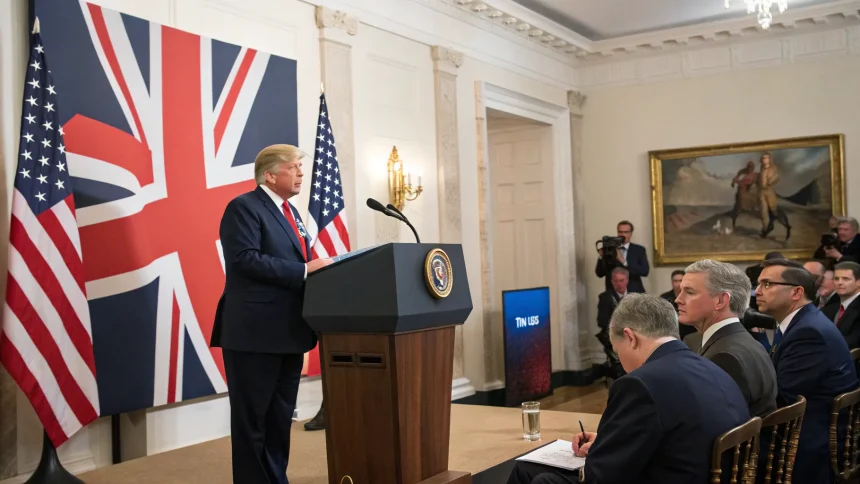Britain took center stage in international economic news on Thursday as U.S. President Donald Trump announced plans for a “major trade deal” with the United Kingdom. This development comes at a critical time, coinciding with the Bank of England’s anticipated interest rate cut, potentially creating a dual boost for the British economy.
The trade deal announcement appears poised to deliver significant relief for UK exporters who have faced challenges in international markets since Brexit. While details of the agreement remain limited, the timing suggests a coordinated effort to strengthen economic ties between the two nations.
Economic Double Boost
The convergence of a new U.S. trade deal and monetary policy easing creates a potentially powerful economic stimulus for Britain. UK exporters, who have navigated complex trade relationships since leaving the European Union, may find new opportunities in the American market if trade barriers are reduced.
The Bank of England’s expected interest rate cut would mark a shift in its monetary policy stance. Lower interest rates typically benefit businesses by reducing borrowing costs and can stimulate economic activity through increased investment and consumer spending.
Financial analysts note that this combination of trade expansion and monetary easing could help counter recent economic headwinds facing the UK, including inflation pressures and sluggish growth figures from recent quarters.
European Investment Landscape
Beyond the UK-specific developments, economic experts suggest Europe as a whole may be better positioned than commonly thought to attract global investment flows. Despite persistent narratives about European economic fragility, structural factors indicate resilience in absorbing international capital.
Several factors contribute to Europe’s investment readiness:
- Established regulatory frameworks that provide stability and predictability
- Advanced infrastructure networks across multiple countries
- Highly skilled workforce with technical expertise
- Growing innovation hubs in multiple urban centers
The European Central Bank’s policies have also created conditions that may prove attractive to international investors seeking stability amid global economic uncertainty. While growth rates may not match those of emerging markets, the risk-adjusted returns often compare favorably.
Market Implications
Financial markets responded cautiously to Thursday’s developments. The pound sterling showed modest gains against major currencies as traders assessed the potential impact of both the trade announcement and the expected rate cut.
Stock markets across Europe displayed mixed reactions, with British exporters seeing the most positive movement. Banking stocks showed sensitivity to interest rate expectations, with some analysts suggesting the sector had already priced in the anticipated Bank of England decision.
Commodity markets remained largely stable, though British export-oriented raw materials saw minor price adjustments as traders calculated the potential for increased demand under new trade terms.
The timing of these developments is notable as they occur against a backdrop of global economic recalibration. With major economies adjusting to post-pandemic realities and geopolitical tensions affecting trade patterns, Britain’s dual economic stimulus could provide a template for other nations seeking to navigate complex international economic waters.
As details of the trade agreement emerge in coming days, economists will closely analyze specific sectors that stand to benefit most. Traditional British export strengths in financial services, pharmaceuticals, and advanced manufacturing will likely receive particular attention from market analysts and investors alike.








